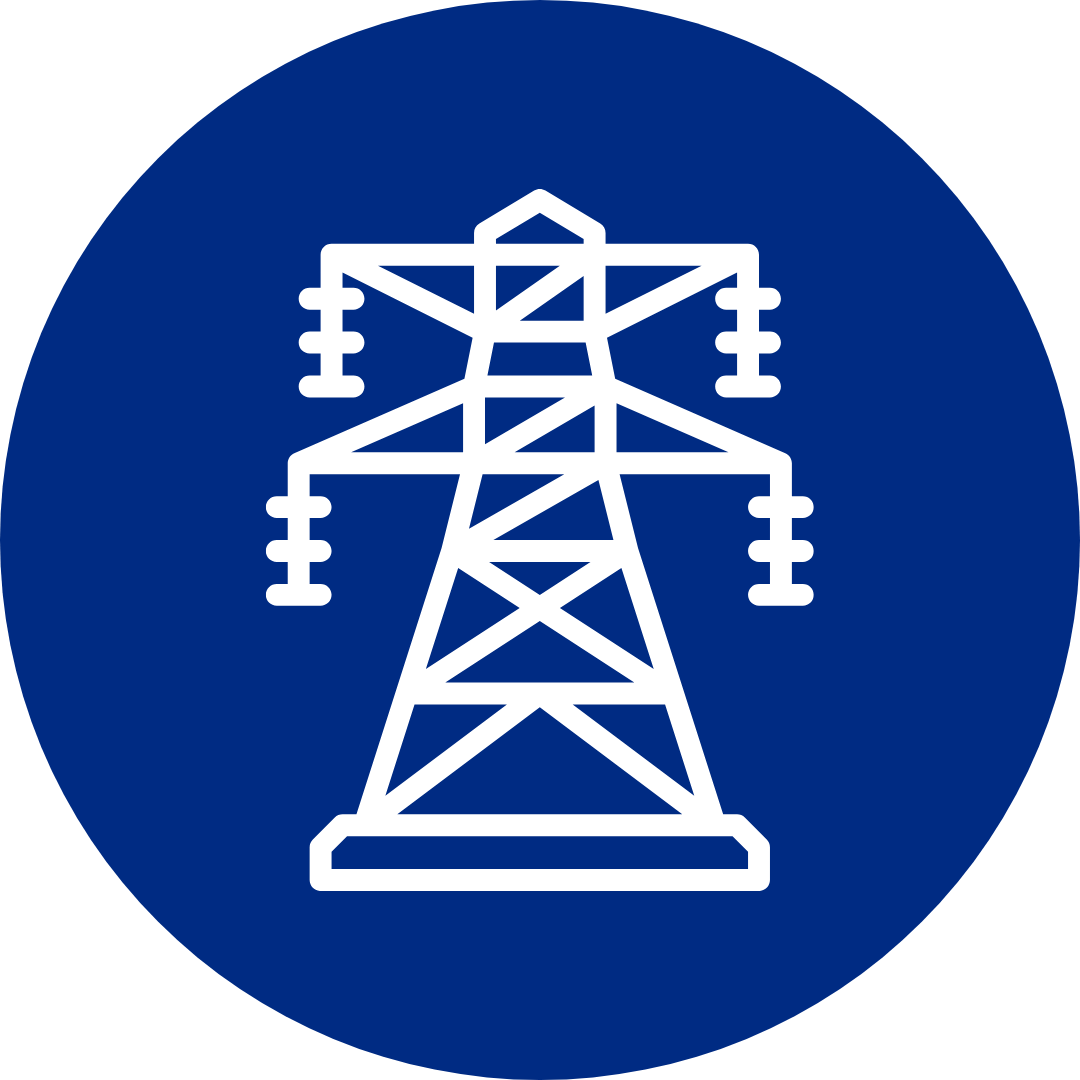In today’s fast-paced industrial environments, reliable automation cables are critical for maintaining smooth and efficient operations. The success of any automation system depends heavily on the quality and durability of the cables that power, control, and communicate with industrial equipment.
At Cableworld, we understand the significance of high-performance cables in ensuring these systems run seamlessly. Our focus is on providing you with the best industrial automation cables tailored to meet the specific needs of your project.
The purpose of this guide is to offer you a thorough understanding of industrial automation cables, their types, and applications, along with insights into selecting the right cable for your particular environment.
What Are Industrial Automation Cables?
Industrial automation cables are designed to transmit power, data, and control signals between equipment in automated systems.
Whether you’re controlling a machine in a factory or transmitting data for process monitoring, the quality of these cables directly impacts the system’s performance and reliability.
Automation cables must withstand demanding industrial conditions, including exposure to oil, chemicals, temperature extremes, and mechanical stresses.
These cables ensure that power flows uninterrupted and that critical signals are transmitted without interference, enabling efficient operation of automated processes across manufacturing lines, control systems, and robotic installations.
Robust and durable automation cables are essential for ensuring minimal downtime and maximising the efficiency of industrial systems.
Types of Industrial Automation Cables
Control Cables
Control cables play a pivotal role in managing automation systems, providing power and transmitting control signals to machinery.
These cables are used to interconnect different components in automation setups, ensuring that commands from control panels or programmable logic controllers (PLCs) are efficiently carried out by machinery.
For example, the SY PVC (YSLYSY) Control Cable is known for its flexibility and durability, making it ideal for both fixed and mobile equipment. This cable is frequently used in production lines, conveyors, and air conditioning systems due to its galvanised steel wire braid, which offers exceptional protection in demanding environments. Its high mechanical strength ensures reliable performance even in the most challenging industrial settings.
Instrumentation Cables
Instrumentation cables are crucial in automation systems for monitoring and communication purposes. These cables are specifically designed to transmit low-energy electrical signals with minimal interference, ensuring the accurate and real-time transfer of data between instruments and control systems.
An example is the 5308 Pt2 Ty1 CAT Collective Screened Non-Armoured Instrumentation Cable, commonly used in industries such as oil, gas, and petrochemicals. This cable provides excellent signal integrity, making it suitable for environments where precision and reliability are critical.
Its collective screening protects against electromagnetic interference (EMI), ensuring that signals remain clear and uncorrupted across long distances.
Power Cables
Power cables are designed to transmit electricity to machines and systems, providing the essential energy required for operating industrial equipment. These cables need to be durable enough to withstand harsh industrial environments while maintaining consistent power transmission.
A great example of a robust power cable is the Titanex® H07RN-F. Known for its versatility, this cable can be used in a wide range of industrial applications, both indoors and outdoors.
Its high-performance rubber insulation and sheathing make it resistant to mechanical wear, temperature extremes, and chemicals, ensuring that it continues to perform reliably in tough conditions, such as construction sites and factories.
The Titanex® H07RN-F is also flexible, making it easy to install in complex industrial environments.
Cable Specifications for Industrial Automation
Armoured vs. Non-Armoured Cables
Armoured and non-armoured cables serve distinct purposes in industrial automation, primarily differing in their level of mechanical protection.
Armoured cables are reinforced with layers of steel wire or other materials, making them highly resistant to physical damage and external forces.
They are best suited for harsh environments where cables are exposed to the risk of mechanical stress, such as underground installations, outdoor applications, or in industrial areas where heavy machinery is in use.
On the other hand, non-armoured cables do not have this additional layer of protection. Instead, they are lighter and more flexible, ideal for environments where the risk of mechanical damage is minimal.
These cables are commonly used indoors or in controlled environments, such as within machines or equipment cabinets.
Shielding and Screening
In industrial settings, electromagnetic interference (EMI) can significantly affect the performance of automation systems. Shielding is essential for preventing EMI from disrupting sensitive signals, particularly in environments with high electrical noise, such as factories with heavy machinery.
Cables like the 5308 Pt1 Ty1 CAT Collective Screened Non-Armoured Instrumentation Cable are designed with specific screening materials that protect the signal from external interference.
This ensures that data transmission remains accurate and reliable, which is crucial in systems where precision is vital, such as instrumentation in oil and gas facilities.
Applications of Industrial Automation Cables
Factory Automation
Industrial automation cables are essential for the smooth functioning of production lines, robotics, and machinery control systems.
These cables transmit signals and power between various control devices, motors, sensors, and actuators, ensuring that automated systems run efficiently. Without reliable cabling, production lines can suffer from downtime, inefficiency, or even safety risks.
Hazardous Environments (Oil, Gas, and Petrochemical Industries)
In hazardous environments like oil, gas, and petrochemical industries, automation cables must meet high safety standards to withstand extreme conditions such as high temperatures, chemical exposure, and explosive atmospheres.
Durable, armoured cables with enhanced fire resistance and chemical protection are critical for ensuring safety and maintaining reliable operations.
An example is the 5308 Pt1 Ty2 LSF Armoured Instrumentation Cable, which is specially designed for these sectors.
Its robust construction ensures that it can handle the mechanical stress and hazardous conditions found in these industries, while its low-smoke, zero-halogen (LSF) properties improve safety in the event of a fire.
Building Management Systems
Automation cables are also integral to building management systems (BMS), which control essential functions such as heating, ventilation, air conditioning (HVAC), lighting, and security in commercial buildings.
Control cables transmit data and signals between various systems and devices, ensuring that buildings operate efficiently and safely. In these applications, cables must be durable, reliable, and capable of handling the long-term demands of building automation.
Choosing the Right Industrial Automation Cable
Key Factors to Consider
When selecting the right industrial automation cable, it's essential to assess several factors to ensure long-term performance and reliability. First, consider the environmental conditions where the cable will be installed.
In harsh environments—such as those with exposure to chemicals, moisture, or extreme temperatures—choosing a durable, armoured cable with additional protective features is crucial.
Next, evaluate the voltage requirements of your automation system. Different cables are designed to handle specific voltage levels, and selecting the wrong cable can lead to inefficiency, safety risks, or system failures.
Equally important is the flexibility of the cable. Some applications, especially those involving robotic arms or machinery with constant movement, require cables that offer greater flexibility to withstand repeated bending.
Lastly, always consider the safety features of the cable. Fire resistance, low smoke emissions, and shielding against electromagnetic interference (EMI) are essential in ensuring not only the efficiency of your system but also the safety of personnel and equipment.
Expert Recommendations
Selecting the right cable for your automation needs can be a complex task, as various factors must be weighed based on your specific application.
At Cableworld, we understand that every automation system is different. That's why we provide tailored solutions that are specifically designed to meet the unique requirements of each industry and environment.
Benefits of High-Quality Industrial Automation Cables
Durability and Safety
One of the greatest advantages of using high-quality industrial automation cables is the long-term durability they offer. In demanding industrial settings, cables are subjected to constant wear and tear, harsh environments, and mechanical stresses.
High-quality cables are built to withstand these conditions, reducing the risk of downtime caused by cable failures or malfunctions. This durability also extends the life of the cable, resulting in fewer replacements and lower maintenance costs over time.
In addition, top-grade cables provide enhanced safety features. Fire-resistant, low smoke zero halogen (LSOH), and armoured cables ensure the protection of personnel and equipment in the event of a fire or electrical fault. The right cable not only boosts productivity but also minimises safety hazards.
Signal Integrity and Performance
In industrial automation, maintaining signal integrity is critical to ensuring that control systems function accurately and efficiently. Poor-quality cables are more susceptible to electromagnetic interference (EMI) and crosstalk, which can lead to data loss, inaccurate signals, and potential system failures.
High-quality industrial cables, particularly those with proper shielding and screening, preserve signal integrity by minimising interference, allowing for reliable data transmission and control.
By investing in cables that prioritise performance, you ensure that your automation systems run smoothly, without interruptions caused by signal degradation or connectivity issues. This reliability translates into better overall efficiency and productivity for your industrial operations.
Automation Cables FAQs
What are industrial automation cables?
Industrial automation cables are specially designed to transmit power, data, and control signals within automated systems. These cables are built to withstand harsh environments, mechanical stresses, and potential interference, ensuring reliable performance in factories, production lines, and other industrial settings.
What types of industrial automation cables are available?
There are various types of industrial automation cables, including control cables, instrumentation cables, and power cables. Each type serves a unique purpose, such as managing automation systems, transmitting data, or delivering power to machinery. Shielded, armoured, and flexible cables are also common depending on the specific demands of the application.
What is the role of armoured cables in industrial automation?
Armoured cables provide enhanced mechanical protection, making them ideal for use in harsh industrial environments where cables are exposed to physical stress, impact, or abrasion. The armouring layer shields the internal conductors from damage, ensuring the system remains functional and safe under tough conditions.
How do I choose the right cable for factory automation?
To choose the right cable for factory automation, you should consider factors like environmental conditions (e.g., temperature, moisture, exposure to chemicals), voltage and current requirements, flexibility needs, and the level of protection against electromagnetic interference (EMI). Consulting with experts ensures you select cables optimised for performance, durability, and safety.
What is the PAS5308 standard and why is it important?
The PAS5308 standard is a specification for instrumentation cables used in critical industries such as oil, gas, and petrochemicals. It defines performance and safety requirements to ensure cables can withstand harsh conditions while maintaining signal integrity. Adhering to this standard is important to ensure compliance, safety, and reliability in demanding industrial environments.
What industries rely on industrial automation cables?
Industries that rely heavily on industrial automation cables include manufacturing, oil and gas, petrochemicals, energy generation, wastewater treatment, and building management systems. These cables play a critical role in maintaining operational efficiency, safety, and communication within automated processes.
Are specialised connectors needed for industrial automation cables?
Yes, specialised connectors are often required for industrial automation cables to ensure reliable connections in demanding environments. These connectors are designed to withstand mechanical stress, environmental exposure, and electromagnetic interference, providing secure and stable connections that maintain signal integrity.
Alarm Cable
Arctic Grade Cable
Armoured Cable
Audio & Speaker Cable
Auto Cable
Bare Copper
Belden Equivalent Cable
Co-axial Cable
Data Cable
DC Telecom Cable
Defence Standard Cable
Emergency Lighting & Fire Detection Cable
EV Cable
Festoon
![Loose Tube Fibre Cross Section]()
Fixed Wiring PVC & LSOH Cable
Flatform
Flexible Control Cable
Flexible PVC Cable
Flexible Rubber Cable
General Wiring Cable PVC & LSOH
High Temperature Cable
High Voltage Cable
![5308 p1 t2 cat Cross Section]()
LSOH Flexible Cable
Medium Voltage Cable
NYY & N2XH Cable
Protected Wiring Cable
Silicone Cable
Solar Cable
Split Concentric Cable
Spiral Cable
Temporary Power Cable
Tri-Rated Cable
Welding Cable
Alarm Cable
Arctic Grade Cable
Armoured Cable
Audio & Speaker Cable
Auto Cable
Bare Copper
Belden Equivalent Cable
Co-axial Cable
Data Cable
DC Telecom Cable
Defence Standard Cable
Emergency Lighting & Fire Detection Cable
EV Cable
Festoon
![Loose Tube Fibre Cross Section]()
Fixed Wiring PVC & LSOH Cable
Flatform
Flexible Control Cable
Flexible PVC Cable
Flexible Rubber Cable
General Wiring Cable PVC & LSOH
High Temperature Cable
High Voltage Cable
![5308 p1 t2 cat Cross Section]()
LSOH Flexible Cable
Medium Voltage Cable
NYY & N2XH Cable
PAS - BS5308 Instrumentation Cable
Protected Wiring Cable
RS-232 Cable
RS-485 Cable
Silicone Cable
Solar Cable
Split Concentric Cable
Spiral Cable
Telephone Cable
Traffic Signal Cables
Temporary Power Cable
Tri-Rated Cable
Welding Cable
Airports
Automation & Process Control
![Automotive]()
Building & Construction
Communication & Telecommunication
Data Centres
Defence
![DNO 1]()
E-Mobility
Food & Beverage
Marine & Offshore
Mining, Drilling & Tunnelling
OEMs
Oil, Gas & Petrochemical
Rail & Metro
Renewable Energy
Switchgear
Power
Water Treatment













































